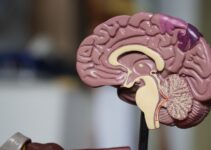Who was Henrietta Lacks and why is she so important?
Henrietta Lacks was an African American woman who unknowingly made a significant contribution to medical science. In 1951, at the age of 31, Henrietta was diagnosed with cervical cancer and underwent treatment at Johns Hopkins Hospital in Baltimore, Maryland. During her treatment, a sample of her cancer cells was taken without her knowledge or consent. These cells, known as HeLa cells, would go on to become the first immortal human cell line, revolutionizing medical research and leading to countless scientific breakthroughs.
The Science behind Henrietta Lacks’ Immortal Cells: How did they change the world?
Henrietta Lacks’ cells, known as HeLa cells, have had a profound impact on medical science. Unlike normal human cells that die after a certain number of divisions, HeLa cells have the ability to divide indefinitely. This unique characteristic has made them invaluable in scientific research, as they can be used to study the effects of diseases, test new drugs, and develop vaccines.
One of the most significant breakthroughs made possible by HeLa cells was the development of the polio vaccine. In the 1950s, when polio was a major public health crisis, scientists were struggling to find a way to grow enough polio virus for vaccine production. However, HeLa cells provided a solution. They were able to support the growth of the polio virus in large quantities, leading to the successful development of the vaccine.
HeLa cells have also been instrumental in cancer research. They have been used to study the effects of various cancer treatments and to develop new therapies. Additionally, HeLa cells have been used in research on HIV/AIDS, genetic disorders, and many other areas of medical science. The impact of Henrietta Lacks’ cells on scientific research cannot be overstated.
The Ethics of Using Henrietta Lacks’ Cells: Was it right to use them without her consent?
The use of Henrietta Lacks’ cells without her consent raises important ethical questions. At the time when her cells were taken, informed consent was not a standard practice in medical research. Patients were often not fully informed about the nature of the research being conducted or the potential uses of their tissue samples. This lack of informed consent was particularly prevalent among marginalized communities, such as African Americans.
While it is clear that Henrietta Lacks’ cells have led to significant advancements in medical science, the question remains whether it was ethically justifiable to use them without her knowledge or consent. Some argue that the ends justify the means, as the use of her cells has saved countless lives and improved medical treatments. Others argue that individuals have a fundamental right to control what happens to their own bodies and that Henrietta Lacks’ autonomy was violated.
The Human Story behind the Science: How did Henrietta Lacks’ family feel about her cells being used?
The use of Henrietta Lacks’ cells without her consent had a profound impact on her family. For many years, they were unaware that her cells had been taken and used in scientific research. When they eventually learned about it, they were shocked and felt a sense of violation. They also struggled with the fact that their mother’s cells had been commercialized and profited from by various companies and institutions.
The emotional toll on the Lacks family was significant. They felt a deep sense of loss and betrayal, as they had not been given the opportunity to give their consent or be involved in decisions regarding their mother’s cells. In recent years, the Lacks family has become more involved in discussions about their mother’s legacy and has advocated for greater transparency and recognition of Henrietta’s contribution to science.
The Legacy of Henrietta Lacks: How has her story impacted the world?

Henrietta Lacks’ story has had a lasting impact on the world. Her cells have been used in countless scientific studies and have led to numerous medical breakthroughs. The use of her cells has also brought attention to the issue of medical ethics and the need for informed consent in research.
Henrietta Lacks’ story has sparked important conversations about the intersection of race, class, and healthcare. It has highlighted the historical and ongoing disparities in access to healthcare and the mistreatment of marginalized communities in medical research. Her story has also shed light on the need for greater awareness and advocacy for ethical medical practices.
The Role of Rebecca Skloot in Telling Henrietta Lacks’ Story: How did she uncover the truth?
Rebecca Skloot played a crucial role in uncovering Henrietta Lacks’ story and bringing it to the public’s attention. Skloot first learned about Henrietta Lacks and her cells while studying biology in college. Intrigued by the lack of information available about Henrietta, Skloot embarked on a years-long research journey to uncover the truth.
Skloot conducted extensive interviews with members of the Lacks family, as well as scientists and researchers who had worked with HeLa cells. She also delved into historical records and scientific literature to piece together Henrietta’s story. Her research culminated in the publication of her book, “The Immortal Life of Henrietta Lacks,” which became a bestseller and brought widespread attention to Henrietta’s story.
The Intersection of Science and Ethics: How can we balance progress with respect for human dignity?
The case of Henrietta Lacks raises important questions about how we can balance scientific progress with respect for human dignity. On one hand, scientific advancements have the potential to save lives and improve healthcare outcomes for all individuals. On the other hand, it is essential that these advancements are achieved in an ethical manner that respects the autonomy and rights of individuals.
One way to achieve this balance is through informed consent. It is crucial that individuals are fully informed about the nature of the research being conducted and the potential uses of their tissue samples. They should have the right to make decisions about what happens to their own bodies and have the opportunity to be involved in discussions about the use of their cells.
The Importance of Henrietta Lacks’ Story in the Context of Medical Racism: How has racism affected healthcare?
Henrietta Lacks’ story is particularly significant in the context of medical racism. Throughout history, marginalized communities, particularly African Americans, have been disproportionately affected by racism in healthcare. They have often been subjected to unethical medical experiments and denied access to quality healthcare.
Henrietta Lacks’ case highlights the historical and ongoing impact of racism on healthcare. Her cells were taken without her consent, a violation that was all too common among African Americans at the time. Her story serves as a reminder of the need for greater awareness and advocacy to address these systemic issues and ensure that all individuals receive equitable and ethical healthcare.
The Need for Greater Awareness and Advocacy: How can we honor Henrietta Lacks’ legacy and prevent future injustices?
To honor Henrietta Lacks’ legacy and prevent future injustices, it is crucial that we continue to raise awareness about medical ethics and advocate for informed consent in research. Education is key in empowering individuals to make informed decisions about their own bodies and ensuring that they are aware of their rights.
Additionally, it is important to support organizations and initiatives that promote ethical medical practices and advocate for marginalized communities. By working together, we can create a healthcare system that respects the autonomy and dignity of all individuals.
Henrietta Lacks’ Immortal Legacy and the Power of One Person’s Story to Change the World.
Henrietta Lacks’ story is a powerful reminder of the impact that one person can have on the world. Her cells, taken without her consent, have revolutionized medical science and led to countless scientific breakthroughs. Her story has also brought attention to important issues of medical ethics and the need for informed consent in research.
Through the work of Rebecca Skloot and the advocacy of the Lacks family, Henrietta’s story has become widely known and has sparked important conversations about race, class, and healthcare. Her legacy serves as a reminder of the ongoing disparities in access to healthcare and the need for greater awareness and advocacy.
Henrietta Lacks’ story is a testament to the power of one person’s story to inspire change and promote justice. It is our responsibility to honor her legacy by continuing to advocate for ethical medical practices and ensuring that all individuals have the right to control what happens to their own bodies. Only through education, awareness, and advocacy can we prevent future injustices and create a more equitable healthcare system for all.



